France 2019 #3
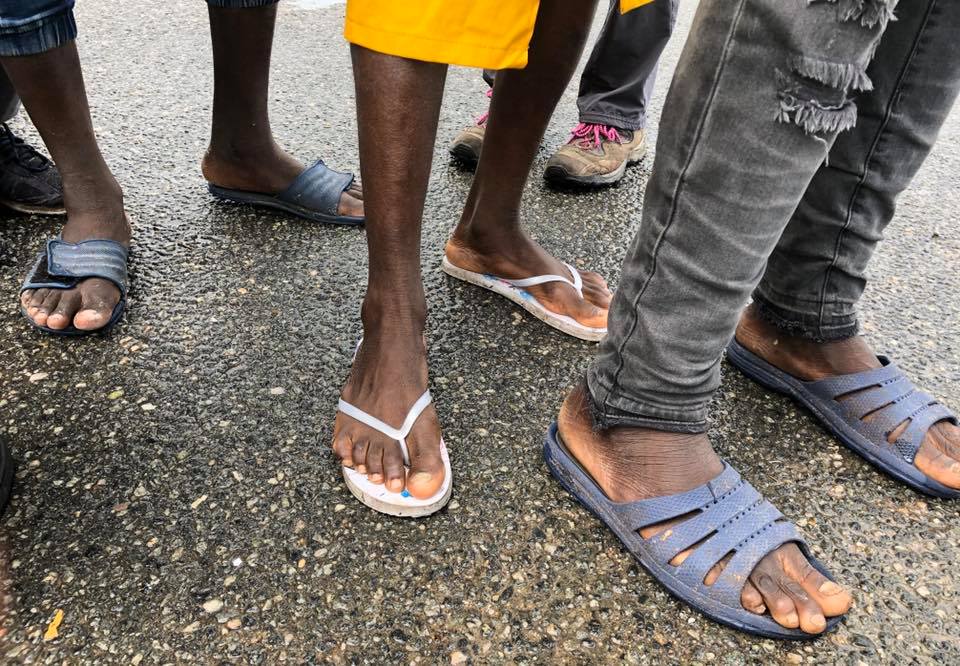
At the camp in Dunkerque the day after the eviction there are as many people as there were before the police came, the only difference today is that people are more desperate, many have lost most of their few belongings.
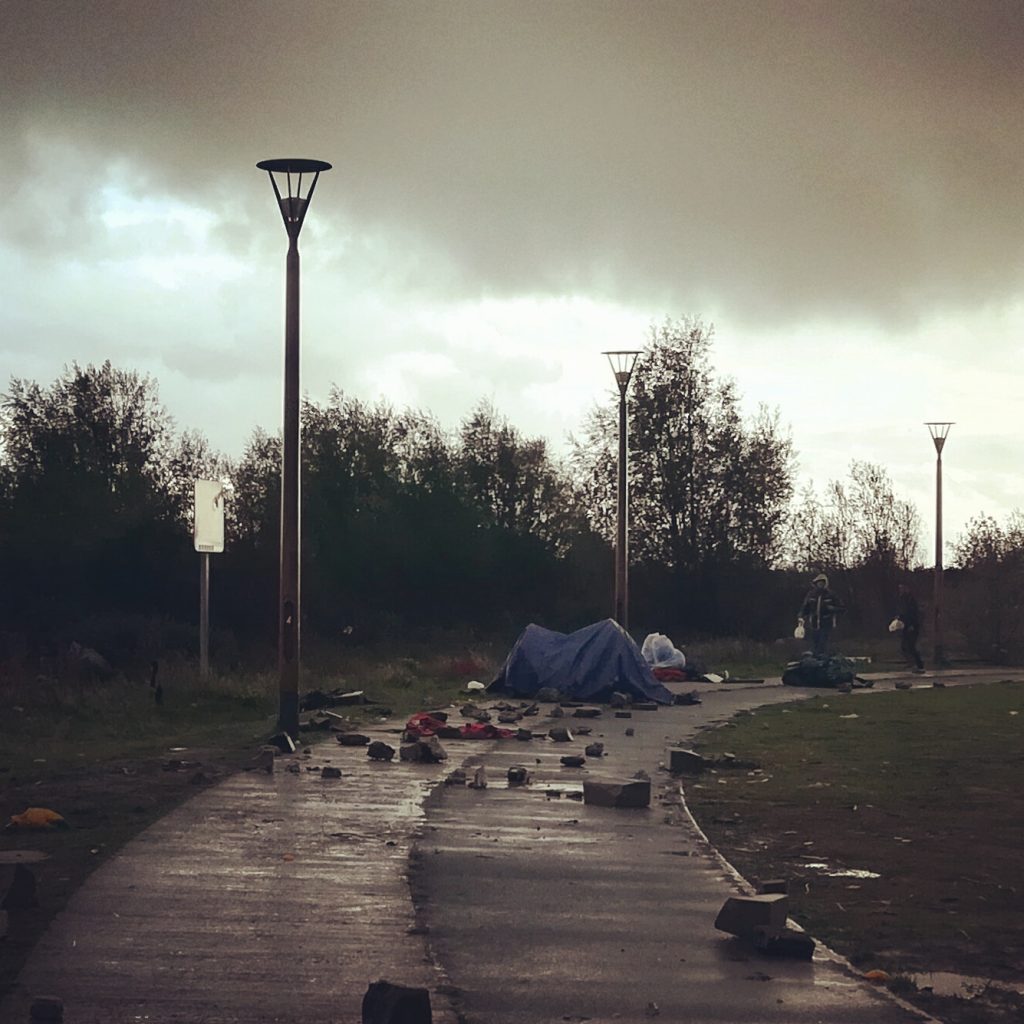
The luckiest ones walk around wearing everything they own, never leaving their stuff anywhere in order not to be taken off guard in case of another police raid.
The less lucky have lost it all to the hands of the CRS, the French anti-riot police, who regularly takes personal belongings, slashes tents and burns whatever is left in order to make the conditions of life unbearable. Partially supported financially by the UK government, the policemen come from all over France and the units change constantly. Their shifts don’t last more than two weeks, because also the police may get moved emotionally and relent.

The result is that some refugees are barefoot, some have plastic bags wrapped around their feet, many don’t have a jacket nor a sleeping bag, most don’t have a place to sleep tonight. Humanitarian organizations distribute clothes, shoes and first need goods. Every other days the police comes and evicts them and all starts all over again.
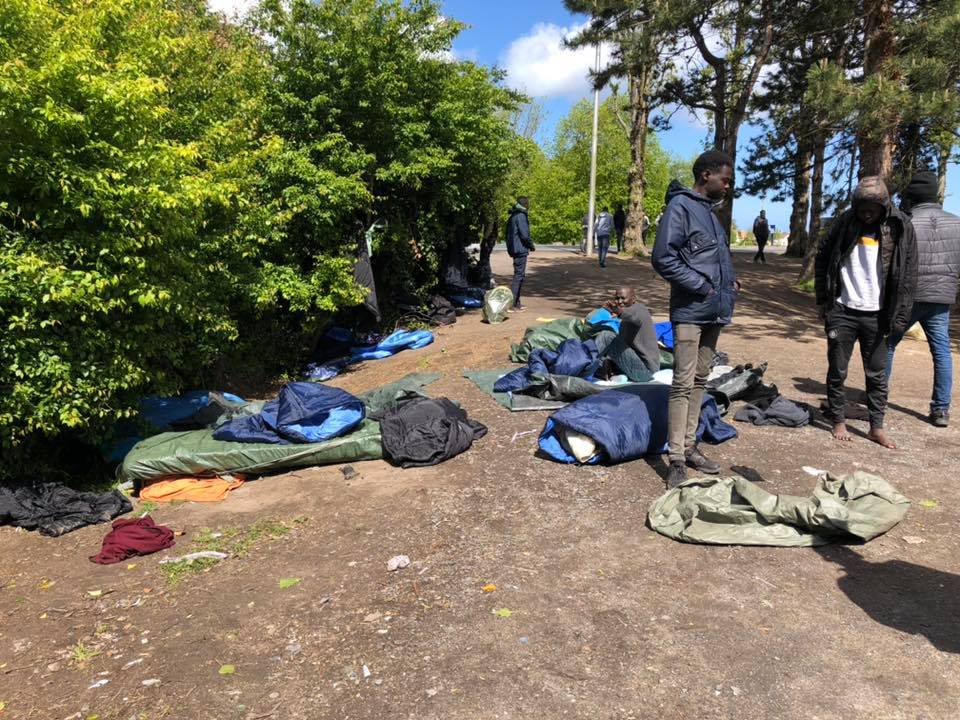
“Blanket or tarp?” You have a few seconds only to decide if you’d rather be cold or dry tonight. But by now you are used to this.
Every day, at all times, you have to take important decisions on which your life depends on.
“Italy or Greece?” “This truck or the next one?” “A tent near the road to run away faster in case of an eviction or hidden in the woods to prevent being caught?”
You learn to quickly label events into opportunities or scams, you become more and more tangibly aware of your priorities. When you are on the road without access to any rights you gain very quickly the ability to evaluate the present moment at all times. You learn to assess your basic needs, because the things on which your survival depends on change fast, and constantly.
Then, as you assess your priorities, you learn very quickly to trust or not trust people. At first sight, you need to understand if you can believe what you are told, if trusting who is in front of you will somehow benefit you, or not.
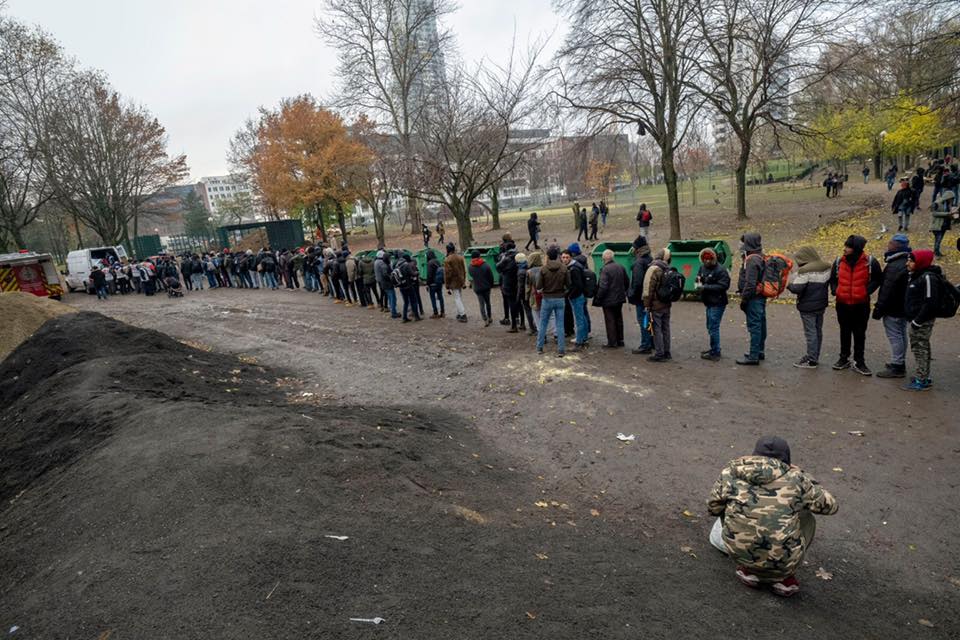
Sometimes you don’t trust when you should, and some opportunities slip away. The following day you find out they have made it across, but you hadn’t believed.
Sometimes you trust when you shouldn’t, and you end up on a makeshift boat that doesn’t stay afloat or in a truck that get stopped at the first check point.
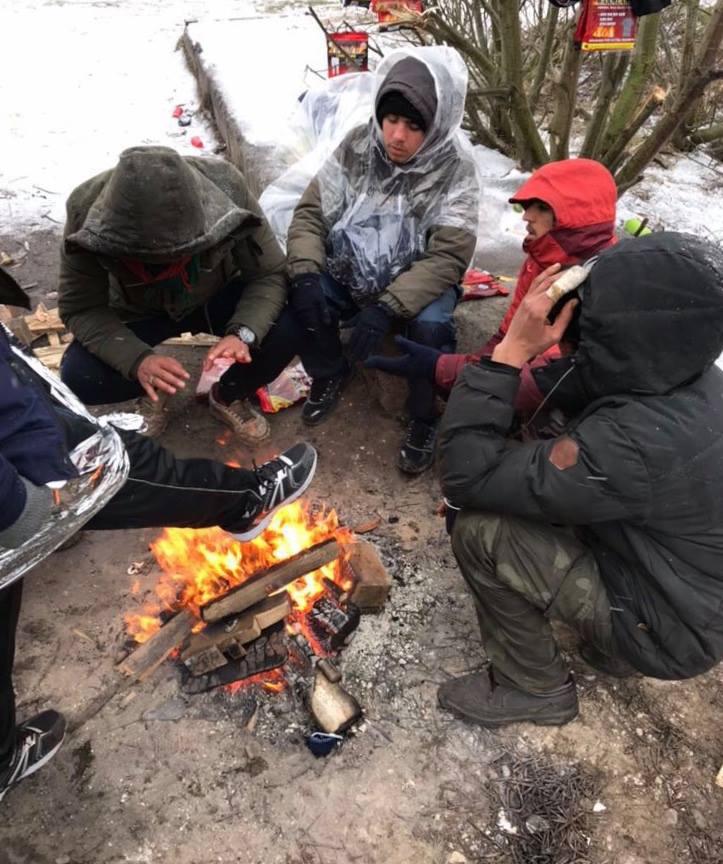
Sometimes you trust knowing that you shouldn’t, and you board a government bus after an eviction. Your hope was to spend a couple of days in a shelter, get a hot shower, a good night sleep and go back to where opportunities to get across are more likely to arise, but you end up dropped off in the middle of nowhere, a few hours drive away from where the police evicted you some hours earlier. And all you can do is to make your way back, on foot or sneaking on a train, without a shower nor a decent night sleep.
Sometimes you trust and you follow the whole process as they say, and you end up with a piece of paper that grants you the right to stay, but the only place where you can find shelter is the street.
Sometimes you simply don’t have a choice, and you prevent yourself from assessing if it’s better to trust or not, leaving to hope all the little space that fear has left available.
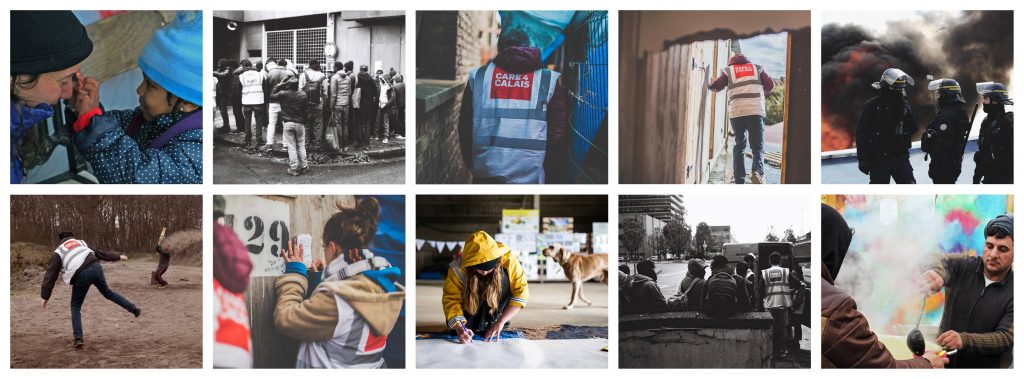
For more information about the situation of refugees in France, please visit Care 4 Calais or browse Margeye
Per leggere questa storia in italiano, clicca qui

